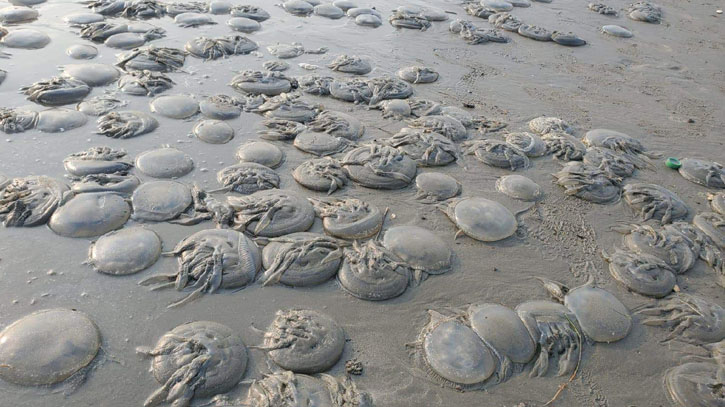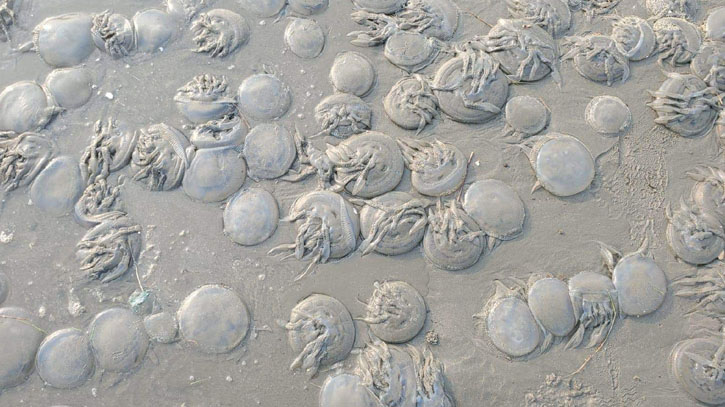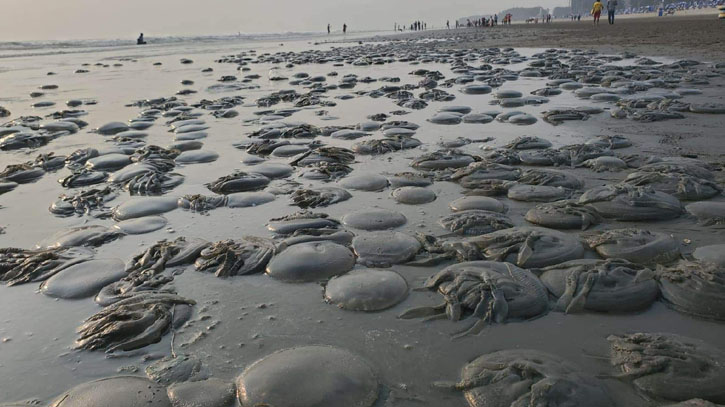
Photo: TDM
Jellyfish of the species Crambionella Orsini or Ball Nuinna have been washing ashore on various beaches along with tidal waves in the Kalatoli Point area of Cox's Bazar city, interesting ocean scientists.
With the proper research and development of jellyfish harvesting techniques, Bangladesh could open up new horizons in the economy. The country could potentially earn billions of foreign currencies every year by harvesting these jellyfish and exporting them to other countries. The multifaceted use of this creature could create a new industry in Bangladesh, creating jobs and boosting the country's economy, observed ocean scientists.
Director General of the Bangladesh Institute of Marine Research, Sayeed Mahmud Belal Haider, said that hundreds of dead jellyfish of Crambionella Orsini or Ball Nuinna species have been washing ashore on beaches in last few days. These jellyfishes are considered edible and Bangladesh could earn huge foreign currencies every year by netting and exporting them, he added.

He also explained that in various countries of the world, different products are being made from jellyfish, such as fertilizer, pesticides, medicine, and cosmetics.
Currently, marine scientists are researching the capture, processing, marketability and food recipe techniques of this creature. Extensive research is being conducted on this marine animal to ensure its multifaceted use.
However, there are nearly 2,500 species of jellyfish in the world, among which only 12 species are considered edible, including Crambionella Orsini or Ball Nuinna jellyfish. In Indonesia, Crambionella Orsini jellyfish species are popular food and are also used in medicine and cosmetics.
Last year, jellyfish of the species Lobonomodis Robustas or Dhola Nuinna or Bar Nuinna also washed ashore on various beaches in Cox's Bazar.
According to World Economic Forum in 2019 the world saw a whopping 900 million tonnes of jellyfish production. Both species are edible, but jellyfish are not commonly eaten in the country, so when caught in fishing nets, they are thrown back into the sea.

However, in the future, these dead jellyfish may wash up on beaches with sea waves and become food for insects and crabs, according to marine scientists.
Sayeed Mahmud Belal Haider said that for centuries, dead jellyfish have been washing ashore on Cox's Bazar beach with seafaring waves. At one time, these dead jellyfish or Nuinna used to accumulate in the Bakkhali River and the estuary in the northern part of the city. It is from this Nuinna that the 2nd ward adjoining the airport in the city was named Nuinnachora.
TDM/MI








